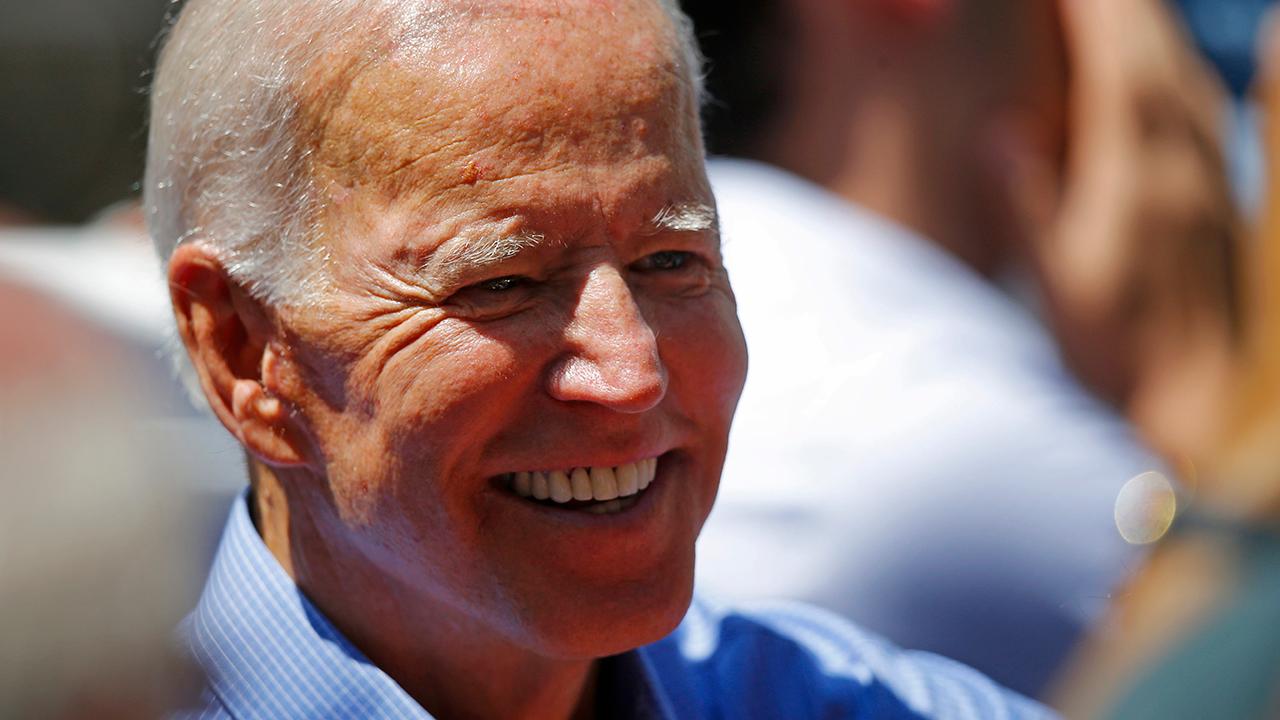Biden’s full embrace of Obama health law has political risks
Joe Biden had just rolled out his health care plan when he made what could be a fateful pledge to a crowd in Iowa: “If you like your health care plan or your employer-based plan, you can keep it.”
The remark echoed assurances President Barack Obama made repeatedly as he sold the Affordable Care Act, which became known as “Obamcare.” But Obama’s promise proved an exaggeration, if not a falsehood, and it anchored early GOP attacks on the law as new regulations led private insurers to cancel certain policies, even if they had to offer replacements to consumers.
Biden’s promise on job-based coverage , which almost 160 million Americans use, underscores the risks of positioning himself as the health overhaul’s chief defender. Fully embracing the health law and pledging to expand it also means exposing Biden to attacks from all sides: from the left that wants more than what Biden is offering; from the right that loathes the law in any form; and from the middle, where voters remain skeptical about the nation’s complex and expensive health care system.
“This is one of those issues where the pendulum has swung back-and-forth since ‘Obamacare’ passed,” Democratic pollster Paul Maslin said, pointing to health care’s role in Republican victories in 2010 and Democratic wins last November. “Right now we have the advantage,” Maslin said, “but I’d be a fool to say there’s no risk here.”
Indeed, the Republican National Committee has seized on Biden’s policy rollout. “Biden has to deal with the fact that he would be the 2020 face of Barack Obama’s notorious lie that if you like your health care plan you can keep it,” said Steve Guest of the Republican National Committee.
Biden is at the center of a broader Democratic divide over the future of health care that will likely be an animating issue at this week’s primary debate in Detroit.
The former vice president is proposing to add a “public option” that would allow Americans to choose whether to buy government insurance or buy private policies. He also would boost existing subsidies that consumers use to buy policies on the law’s exchanges. That would mark a significant expansion but still be a more incremental approach than Vermont Sen. Bernie Sanders’ “Medicare for All” proposal, which would essentially replace the private market with government insurance.
Biden’s campaign says his position reflects voters’ slow embrace of the 2010 law, while acknowledging voters’ concerns about the cost and consequences of a single-payer, government health insurance system and their distrust of private insurers and the pharmaceutical industry.
“I knew the Republicans would do everything in their power to repeal ‘Obamacare,’” Biden says in an online campaign ad. “They still are. But I’m surprised that so many Democrats are running on getting rid of it ... and if I’m elected president, I’m going to do everything in my power to protect it and build on it.”
An Associated Press-NORC Center for Public Affairs Research poll this spring found 57% of adults wanted the health law to remain; 42% percent said it should be kept, but with changes. Four out of 10 favored a rollback, but just half of those called for total repeal. Meanwhile, 53% favored adding a nonmandatory government insurance plan to the market; less than one-fifth opposed that course. That’s a more favorable split than on single-payer, which garnered 43% support and 31% opposition.
Which party ultimately wins on health care, Maslin and other Democrats argue, depends on who voters believe will better protect access to care, regardless of the details. “People still don’t like the way the market works,” from rising premiums to spiking drug costs, Maslin noted, but they distrust a politician “who might be taking something away.”
Republicans capitalized in 2010, when voters saw Obama’s new law — adopted but not yet in place — as the threat and rewarded the GOP’s mantra of “repeal and replace.”
By 2018, after years of GOP failures to offer an alternative, voters had grown accustomed to key provisions, chiefly the guarantee of coverage for those with existing health conditions and Medicaid expansion to cover the working poor and lower middle class. Last November, Democrats won a net 41-seat gain in the House and seven new governorships, many of the victories driven by suburban voters who’d seen a deluge of ads defending the law and hammering Republicans for attempts to gut it. Trump continues to pursue repeal, and the administration backs a pending federal lawsuit to strike down the law in its entirety.
A few months into the new Congress, the AP-NORC poll found Democrats with a 17-point advantage, 40% to 23%, on the question of which party voters trusted more on health care.
“People may have different feelings about our different approaches, but they’re more popular than Trump’s repeal that would make the problem worse,” said Jesse Ferguson, a Democratic strategist who has worked on health care messaging in recent election cycles.
Added Maslin: “Part of me says we’d be better off with no plan, let Republicans continue to screw it all up. But that’s just not responsible.”




















